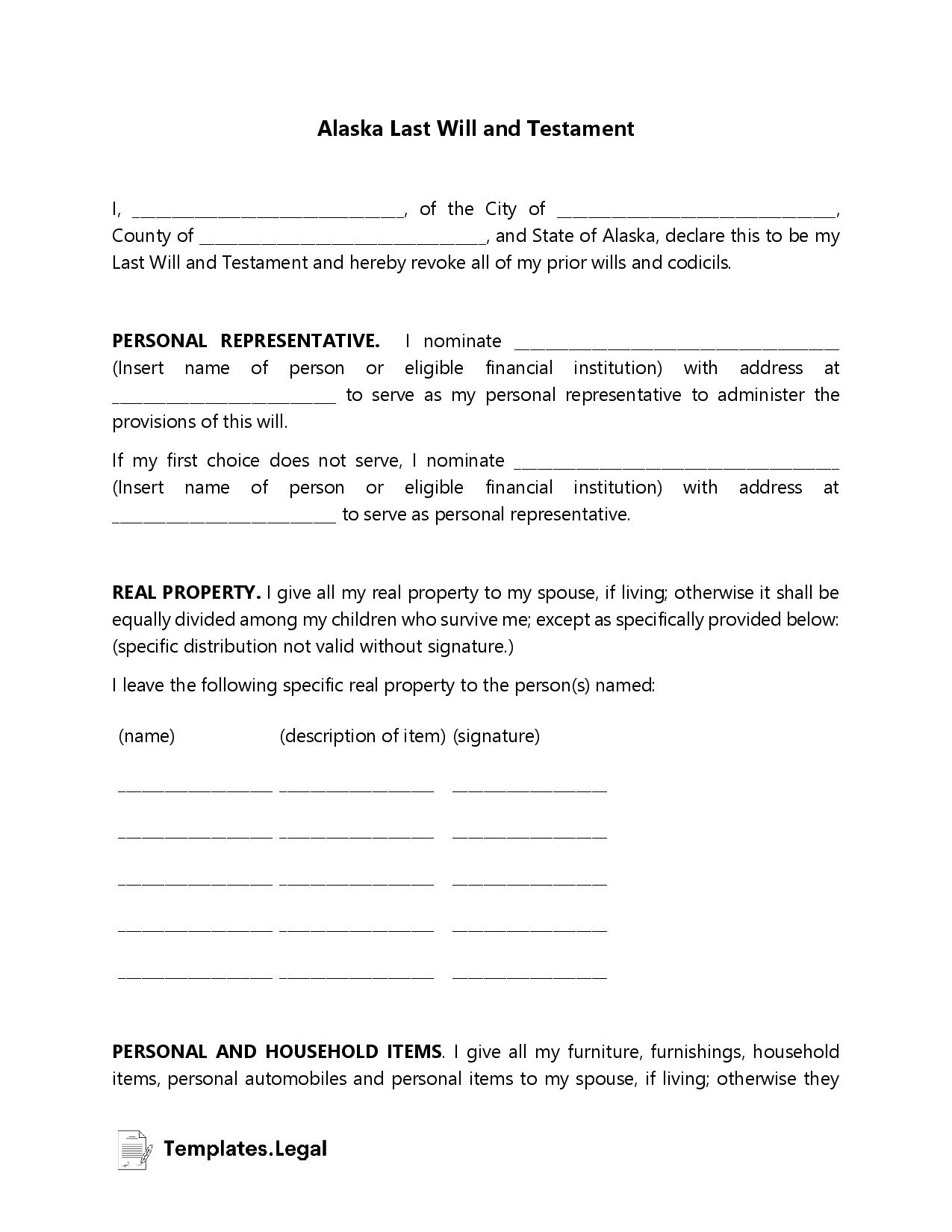Alaska Last Will and Testament
When it comes to an Alaska last will and testament, the state’s probate courts oversee the division of property and estates. The court handles estate and property divisions under the guidelines set forth by the testator, or the person who made the will.
An Alaska will describes what will happen to an individual’s property after death. In Alaska, the creator of a last will and testament must be someone 18 years or older. The testator must be of sound mind and submit the document in writing. Alaska does not recognize or accept oral wills.
An Alaska last will and testament template may be used. However, it is not required. If changes are needed to the last will and testament form, Alaska requires an amendment – called a codicil – to be included and signed in the same manner as the initial will.
Alaska Last Will and Testament Template
Requirements for a Will to be valid in Alaska
For a will to be valid in Alaska, the testator must follow specific guidelines:
- Divide the desired property between inheritors
- Choose an executor
- Choose a guardian if children are present and underage
- Choose a manager for your children’s property
- Sign the will in front of at least two witnesses
- Two witnesses sign the will in the presence of the testator
An Alaskan will is considered valid when these requirements are met.
Notarized Will in Alaska
Alaska does not require a notary’s signature for the will to be valid. However, a notary’s signature makes the will considered self-proved. A self-proved will need not be proved by the probate court when the time comes. A self-proved will can be admitted to the court without witness testimony.
Cost to Create a Will in Alaska
While a free last will and testament in Alaska might be untenable, a simple Alaska will template allows the process to move forward at a reasonable price. Some attorneys charge hundreds or thousands of dollars, depending on the complexity of the content.
A testator can create their own will in Alaska. One can typically find simple resources to guide them in the process. If all state requirements are followed, the court must accept the will as legal and valid.

